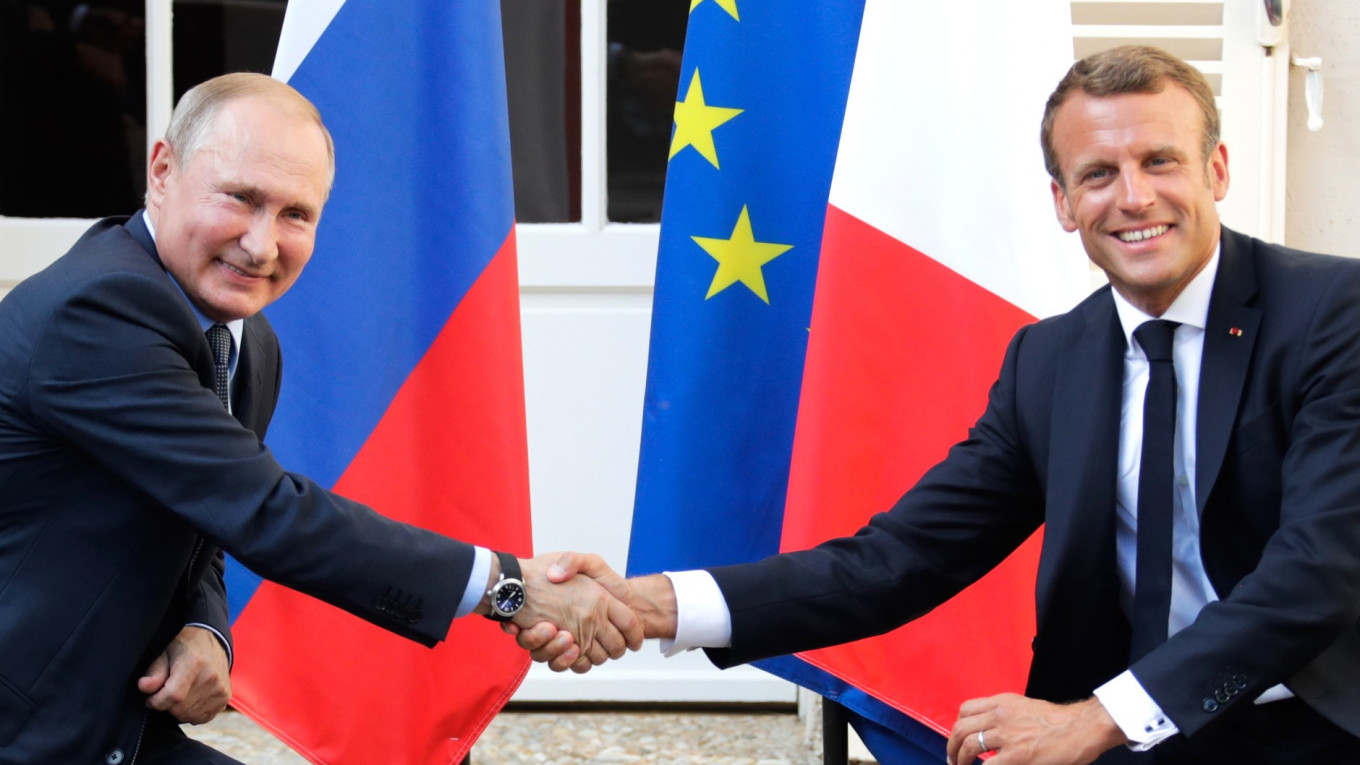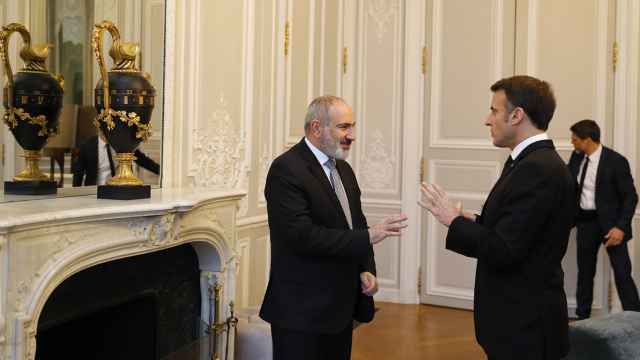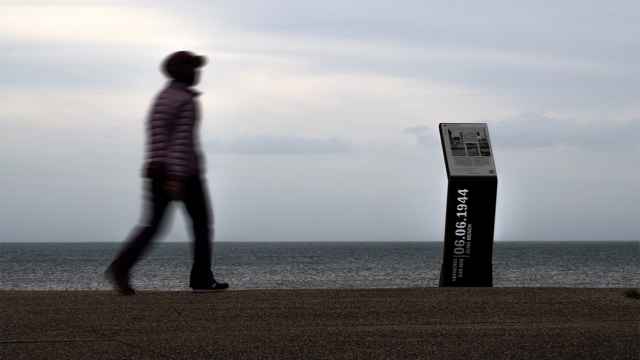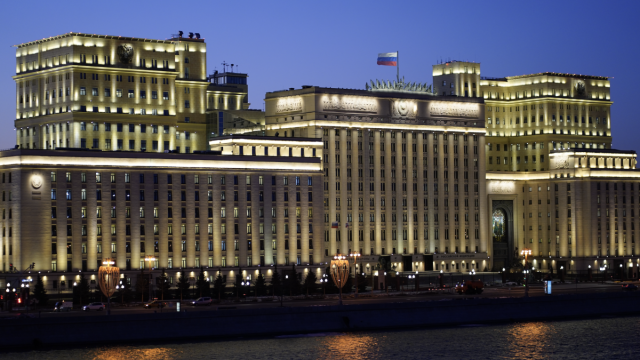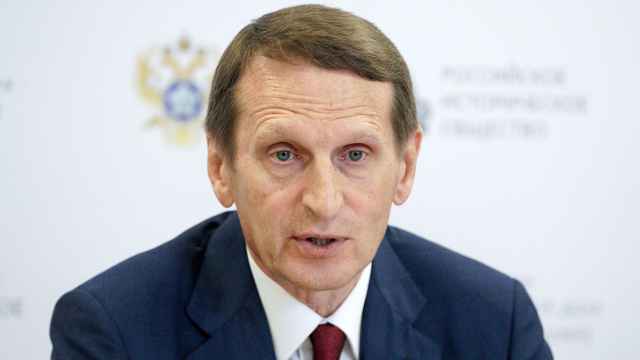In a sort of bizarre political relay race, French President Emmanuel Macron has taken the baton from Presidents Vladimir Putin and Donald Trump to become the main destabilizing force in Europe and the destroyer of the Western world order.
Last week, Macron gave an interview with the British weekly The Economist that had experts all aflutter over his remark that “what we are currently experiencing is the brain death of NATO.”
According to famed French political scientist Bruno Tetre, this marks an escalation in the rhetoric of the French leader, who told a close circle of associates two weeks ago that “NATO will cease to exist in five years.” What’s more, even as NATO prepares to celebrate the 70th anniversary of its founding at a summit in London on Dec. 3-4, Macron publicly voiced doubts as to the effectiveness of the security guarantees found in Article 5 of the North Atlantic Treaty, saying “I don’t know what Article 5 will mean tomorrow.”
And one week before that, Macron vetoed the decision of the European Council to start negotiations with Albania and Northern Macedonia on joining the European Union, single-handedly putting a halt to the process of EU expansion that had continued unabated for the past 25 years. Macron’s interview with The Economist, along with his keynote address at a meeting of French ambassadors, provides the fullest picture of his strategic vision for the geopolitical roles of Europe, France and, oddly enough, Russia, in the modern world.
Agent of change
Macron focused on the need for Europe to achieve “geopolitical autonomy” in the face of deepening global competition with the U.S., China and “the growing strength of authoritarian powers in the European neighborhood” — meaning Russia and Turkey.
The French leader wants the European Union to be more unified and effective in its functioning. He considers it a “political project” possessing “a single sovereignty,” and not a constantly expanding “unified market of local sovereignties.”
Macron has a keen sense of the shifts occurring in the global geopolitical landscape. He wants to lead the changes happening in Europe by “disrupting” the status-quo and acting as an “agent of change” to ensure France’s leadership amidst new conditions.
The French president sees the main shift as the United States’ strategic return to isolationist and mercantilist policies of “national populism” — a trend that began under Barack Obama, peaked under Donald Trump, and that Macron expects will continue no matter who is elected president in 2020.
He speaks with a certain admiration for Trump and Putin as leaders who pursue only the national interests of the countries in “their region” without advancing a global agenda for all mankind – and would like to do the same on behalf of Europe. He cites the turmoil surrounding Brexit and the political stagnation in Germany to justify his intellectual claim to EU leadership. This return to “Gaullism” applies not only to France, but also to the entire European Union – but it remains unclear whether other EU countries are willing to pay for it.
Russian observers, meanwhile, are struck by how closely Macron’s views on European security and world order coincide with those that Putin has espoused ever since his speech at the Munich Security Conference in February 2007.
Macron as Putin
Macron shares many of Putin’s views concerning U.S. policy in Europe and the Middle East. He, like Putin, blames Europe’s migration problem on the misguided U.S. policy of “regime change” during the “Arab Spring.”
Macron contends that the push for “regime change” during the “Arab Spring” “went against the will of the people, the source of sovereignty.” This matches the Kremlin’s main narrative — namely, that all revolutions have their roots in “outside sources.”
Macron shows solidarity with Putin’s feeling of being offended by Western actions after the end of the Cold War. The French president argues that NATO was created to counter the threat posed by the Warsaw Pact – despite the fact that the former was established in 1949 and the latter only took shape in 1955. He stated that NATO continues to view the containment of Russia as its primary strategic objective and has expanded right up to Russia’s borders, leaving that country without a “security zone” and “violating the terms of the deal reached in 1990.” And, he said, “when NATO got as far as Ukraine, Putin decided to stop that expansion.”
Macron also said that Putin considers the EU as a vassal of the U.S., and EU expansion as a Trojan Horse for the expansion of NATO. The French leader essentially parrots Putin’s words — perhaps the result of his confidential conversations with the Russian president in St. Petersburg in May 2018 and at Fort de Brégançon in August 2019 — and leaves no doubt that he believes this view is justified and worthy of consideration.
The French leader essentially recognizes Russia’s right to veto actions of the West in a “zone of privileged interests” in the post-Soviet space, thereby denying the post-Soviet states the right to their own political identities.
This is like a dream come true for Russia’s foreign policy efforts of the past five years. If Putin was still working in foreign intelligence, he could have unhesitatingly written a report after Macron’s recent comments claiming success in “communicating ideas to the president of France that were advantageous to Russia — understandings that then became the foundation of that country’s foreign policy strategy.”
Macron’s call for strengthening “Europe’s strategic autonomy” and overcoming its security dependence on the U.S. also plays into Russia’s long-term interests. Moscow has been trying to decouple Europe from the U.S. ever since the Cold War. Now, Trump’s mercantilist policies are making it a reality. Trump is essentially telling Europe, “You must pay us more to ensure your security, including by buying everything American-made.” Macron says that France did not sign up for this. He is looking to step in if Washington voluntarily abdicates its role as the “provider of European security.”
Macron emphasizes that without first achieving “military sovereignty,” Europe cannot achieve economic or technological sovereignty. He also sees NATO as playing no role whatsoever in the issues of greatest importance to France: the Middle East, the terrorist threat in Africa and migration flows in the Mediterranean. In effect, Macron proposes replacing the U.S. as Europe’s security guarantor against Russia with Russia as the guarantor of Europe’s security against threats from the South.
Moscow is not yet sold
Of course, Macron’s thoughts about Russia’s geopolitical choice and his analysis of Russian policy are somewhat naïve. It is an oversimplification to conclude, as Macron does, that Russia could not be an independent center of power over the long term due to its excessive military spending and the growing number of conflicts in which Moscow would have to become involved. In reality, Russia has a very diverse range of opportunities: It avoids excessive obligations and, since 2016, its military spending in real terms has fallen to the acceptable level of less than 3% of GDP.
From his observation that Putin is seated farther and farther from Xi Jinping at each year’s Belt and Road Summit, Macron has concluded for some reason that Putin finds the “Eurasian project” unacceptable because China already dominates in the region and Russia can hope for nothing more than to become a “vassal of Beijing.” That is a subtle observation, but it is hardly useful for understanding Russia’s strategic rapprochement with China.
It is apparently difficult for Macron to imagine that Russia’s ruling elite see rapprochement with Europe as a greater threat to their ability to retain power than an unspoken and unequal alliance with China. Macron sees Moscow’s current anti-European, conservative discourse as a “necessary reaction” without understanding its usefulness for the ruling elite. Emphasizing Russia’s “European character” enables Macron to semantically avoid the taint of “colonial discourse” characteristic of other Western leaders, but it gives him no influence over Russian politics.
Russia would in theory benefit from playing along with Macron and working with him to squeeze the U.S. out of Europe, strengthening Europe as a center of power independent of the U.S., and strengthening Europe’s military and technological sovereignty from the United States and China.
Three things stand in the way, however. First, the Kremlin is skeptical of Macron himself, whom it views as a political lightweight who cannot back up his eloquent words with actions. Secondly Russia believes it would gain less from a stronger EU that Macron seeks and more from the EU’s further weakening or even disintegration (eliminating a strategic threat). And third, there is a new consideration: China. Macron and others would present any rapprochement between Russia and Europe as Moscow’s “cunning ruse” to withdraw from its alliance with Beijing. That could put Russia in an uncomfortable position with its strategic neighbor.
Moscow will also exercise restraint in its dealings with Macron in the knowledge that his ideas will most likely find no support from other European allies, primarily Germany and the Eastern European countries — despite Macron’s claims that he “works with Viktor Orban.” German Chancellor Angela Merkel has already stated that she does not agree with Macron’s “broad generalizations” about the brain death of NATO.
Of course, Macron is “ours,” but is that enough for Russia’s policies to triumph in Europe?
A Russian version of this article was earlier published in Republic.
A Message from The Moscow Times:
Dear readers,
We are facing unprecedented challenges. Russia's Prosecutor General's Office has designated The Moscow Times as an "undesirable" organization, criminalizing our work and putting our staff at risk of prosecution. This follows our earlier unjust labeling as a "foreign agent."
These actions are direct attempts to silence independent journalism in Russia. The authorities claim our work "discredits the decisions of the Russian leadership." We see things differently: we strive to provide accurate, unbiased reporting on Russia.
We, the journalists of The Moscow Times, refuse to be silenced. But to continue our work, we need your help.
Your support, no matter how small, makes a world of difference. If you can, please support us monthly starting from just $2. It's quick to set up, and every contribution makes a significant impact.
By supporting The Moscow Times, you're defending open, independent journalism in the face of repression. Thank you for standing with us.
Remind me later.



